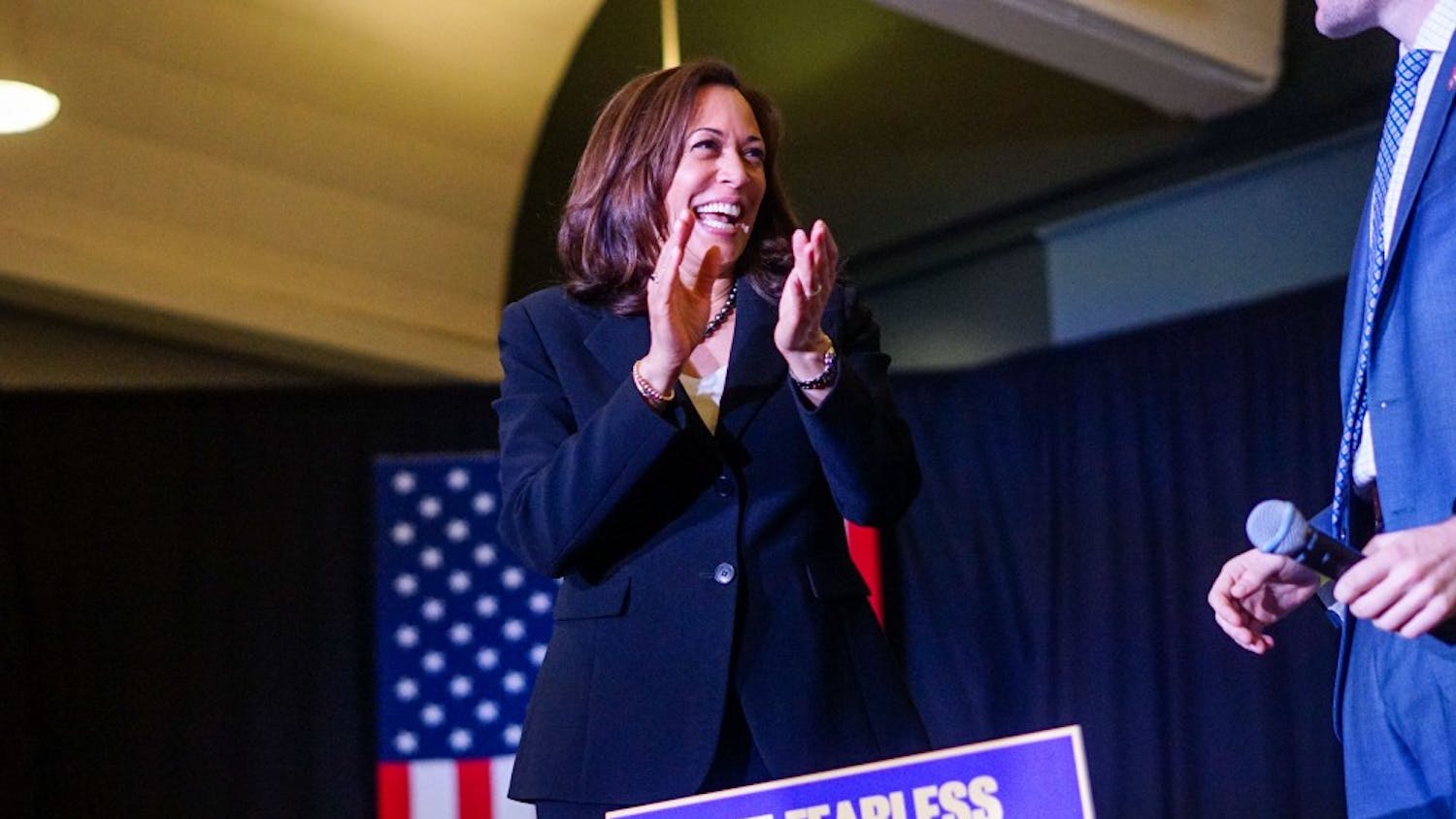“African Americans are struggling.” “Democrats have not done enough for them, and the best way to punish the latter is at the ballot box.”
Those are just some tweets you’ll find with the hashtag “#ADOS,” or “American Descendants of Slaves.” It is a nascent fringe movement seeking to convince African Americans that racial equality is a zero-sum game. ADOS says that immigrants pose the largest threat to affirmative action, which they believe should exist solely for the benefit of African Americans. This scapegoating of immigrants, this attempt to sow racial division, is not an exercise in “agenda politics” as its founders claim — unless that agenda is aiding President Donald Trump’s reelection.
ADOS is a small group of only a few thousand activists. Their direct ancestors, they say, toiled under the United States’ brutal regime of chattel slavery, a historical reality different from that of other self-identifying black people — who, even though they may live in the United States, trace their heritage to the Caribbean or Africa. ADOS says these black immigrant groups unfairly enjoy higher levels of household wealth and education attainment than African Americans. (African immigrants earn college degrees at a higher rate than both U.S.-born black and white people.)
But ADOS, while fairly pointing to injustices and inequalities, flounders under the weight of its own members’ treacly hashtag activism. Take, for instance, a tweet questioning the heritage of Democratic presidential candidate Kamala Harris. Harris, whose mother is Jamaican and father is Indian, failed ADOS’ black purity test. One user mockingly called her “Kamala Dolezal,” an ignominious reference to Rachel Dolezal, a white woman who claimed to be “transracially black,” outed by her white parents three years ago, after serving as an NAACP chapter president.
Trump fanatics and provocateurs have already seized the most vicious of ADOS’ rhetoric to further their own agenda. Donald Trump Jr. later retweeted the Harris post to his millions of followers, inquiring, “Is this true? Wow.” ADOS also garnered the attention of nativist pundit Ann Coulter, tweeting “I like #ADOS,” and suggesting a name change to DOAS, for Descendants of American Slaves.
ADOS officially stands as a nonpartisan group. But to see the right-wing coopting of their cause is like watching a “Chappelle Show” sketch — a self-drawn cartoon of a movement, satirically undermining its own raison d’être. ADOS employs almost verbatim Trump’s strategy for sowing racial discord within the black electorate — Harris is “not black enough” to represent your interests, immigrants take away benefits you should have, all while the Democratic establishment does nothing, save for empty promises. ADOS members have cavalierly suggested not voting Democratic in 2020. Some even flout the idea of voting for Trump.
Antonio Moore, a California attorney, and Yvette Carnell, a former Democratic aide, are the group’s founders. They both refute claims of harboring anti-immigrant sentiment and that ADOS would support President Trump. Instead, they propose a “New Deal for Black America,” at the heart of which is a multi-trillion-dollar reparations program.
But why would so many ADOS members punish the one party which, sort of — although vaguely — entertains the idea of reparations in earnest? Some 2020 Democratic candidates have hinted at hazy plans for its implementation. Cory Booker, Harris, Bernie Sanders and Elizabeth Warren all support studying how reparations could be distributed. It’s not nearly satisfying enough, but it beats the actions of the current president, who blithely remarked about the idea of reparations in June, “I don’t see it happening.”
Perhaps a certain level of incoherent messaging plagues any nascent political movement. But ADOS does not have the strong leadership it would need to correct its many members’ missteps. Carnell indulged in the same Harris phobia concerning her ancestry. And, despite distancing ADOS from nativist hacks, Carnell has defended the use of “blood and soil,” a white supremacist slogan, on her Twitter account.
As seen on ADOS’ official website, the group does consider serious issues facing black America. But serious issues cannot mask the fact that ADOS does not take itself seriously, as evinced by its careless approach to rhetoric and messaging. They are the Kanye West of political advocacy.
I’m sure that they start with well-intentioned premises, but too quickly have they become drunk off the power of a loud microphone and an audience. The mixture achieves a painfully wrong conclusion — one which, unfortunately, only empowers their greatest foes.


